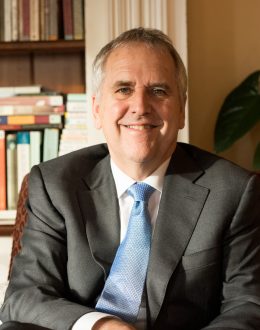
Michael I. Jordan keynote speaker
- An Alternative View on AI: Collaborative Learning, Incentives, and Social Welfare
- Computational Thinking and Inferential Thinking
- How AI Fails Us, and How Economics Can Help
- Stochastic & Economic Perspectives
- Toward a Human-Centered Engineering Discipline
- Towards a Blend of Machine Learning and Microeconomics
Michael I. Jordan has been a world-leading researcher in the field of statistical machine learning for nearly four decades. His contributions at the interface between computer science and statistics include the variational approach to statistical inference and learning, inference methods based on graphical models and Bayesian nonparametrics, and characterizations of trade-offs between statistical risk and computational complexity.
He has also worked at the interface between optimization and machine learning, where he is well known for his development of continuous-time models of gradient-based optimization and sampling, and his work on distributed systems for optimization.
Jordan has built bridges between machine learning and control theory, contributing to the theory of reinforcement learning, learning-based model predictive control, and optimality principles for human motor control. He has also led the way in bringing microeconomic concepts into contact with machine learning, developing learning methods that incentivize learners to share data, showing how contract theory can be employed for statistical inference, and contributing to the study of learning-based matching markets.
Jordan is the Pehong Chen Distinguished Professor in the Department of Electrical Engineering and Computer Science and the Department of Statistics at the University of California, Berkeley. Jordan is a member of the National Academy of Sciences, a member of the National Academy of Engineering, a member of the American Academy of Arts and Sciences, and a Foreign Member of the Royal Society. He is a Fellow of the American Association for the Advancement of Science.
He was a Plenary Lecturer at the International Congress of Mathematicians in 2018. He received the Ulf Grenander Prize from the American Mathematical Society in 2021, the IEEE John von Neumann Medal in 2020, the IJCAI Research Excellence Award in 2016, the David E. Rumelhart Prize in 2015, and the ACM/AAAI Allen Newell Award in 2009. He gave the Inaugural IMS Grace Wahba Lecture in 2022, the IMS Neyman Lecture in 2011, and an IMS Medallion Lecture in 2004. He was the inaugural winner of the World Laureates Association Prize in Computer Science or Mathematics in 2022.

Global Authority on Sustainable Business Growth, Organizational Change Strategist and...



